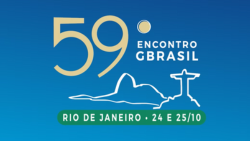Ended the validity of the Provisional Presidential Decree that extends the PIS/Cofins and Social Security Contribution of energy providers
18/02/2022DPCWEB: DPC develops portal to enhance customer experience
23/02/2022EXPERT OPINION
Wind power in Brazil: milestones, developments, and tax breaks for the sector
Wind power sector counts on some initiatives that benefit thischain
By Glória Cunha
Alternative energy sources are part of the priority guidelines in many countries because of the global demand for the evolution of the energy mix. In Brazil, this subject has been increasingly taking over the agenda, and the wind power is one of the highlighted renewable modalities.
According to the Electric System National Operator (Operador Nacional do Sistema Elétrico, or ONS), there is an expectation that the wind generation, which represented 10.9% of the Brazilian energy mix in 2021, evolves to 13.6% by the end of 2025.
The sector still faces challenges in both the legislative and the regulatory environments, but developments seen to this point already serves as a notice of the matter’s growing importance, which might also impulse business competitivity on the wind power industry in the next few years.

Most recent initiatives
In January 2022, Brazil took a step forward. Through the Decree No. 10,946/2022, the federal government published directives to stimulate the development of projects in offshore energy generation.
This measure represents a regulatory milestone for the exploitation of the electric potential in federal interior water, territorial sea, exclusive economic zone, and continental shelf.
Still in January, the Senate has approved the Program for the Incentive of the Development of Wind and Solar Photovoltaic Energy (Programa de Incentivo ao Desenvolvimento da Energia Eólica e da Solar Fotovoltaica, or Pides), whose goal is for the federal government to finance up to BRL 500 million in both wind and solar photovoltaic energies for every region of Brazil.
Next, check other milestones, developments, and incentives for the sector:
Incentive programs for the wind power generation
During 2001 energy crisis, the Emergency Program for Wind Energy was created (Programa Emergencial de Energia Eólica, or Proeólica), the first great initiative that focused on the national wind power envelopment. The program came across many obstacles, and ended up not getting the required regulation, thus, being replaced by the Program for the Incentive of Alternative Energy Sources (Programa de Incentivo às Fontes Alternativas de Energia Elétrica, or Proinfa), in 2002.
One of Proinfa’s goals is to expand the participation of wind power produced by wind sources establishments. Information regarding the program and relevant legislation may be consulted here.
Energy auctions
The amplification of the participation of renewable energy sources in the Brazilian energy mix started to be more material with auctions dedicated to alternative energy sources.
Even more recently, wind energy sources became part of the new energy auctions that sparked the sector in Brazil by opening new investment opportunities.
Promotion of wind energy
The National Bank for Economic and Social Development (Banco Nacional de Desenvolvimento Econômico e Social, or BNDES) announced a BRL 1.47 billion support to the construction of 14 wind farms in northeastern Brazil ( (see here ). The measure is in line with the Energy National Plan 2030, prepared by the federal government, that encompasses strategies for the expansion of cost-effective and sustainable energy throughout the next decade.
Tax relief
The Special System for Infrastructure Development (Regime Especial de Incentivos para o Desenvolvimento da Infraestrutura, or (Reidi)aims to relieve the tax burden off corporate taxpayers that have a project approved to implement infrastructure projects, including the energy sector and contemplating the purchase of the necessary equipment and materials for their development.
Tax incentives
TheICMS Partnership No. 16/2015 allows states to grant exemptions in internal operations regarding the electric power circulation within the specified conditions.
Also, the ICMS Partnership No. 101/1997 predicts exemption from ICMS in operations with equipment and components in states and in the Federal District. This incentive is applicable to the wind power chain and is valid up to December 31, 2028.
The Law No. 13,097/2015, among other measures, reduces the contribution to PIS/Pasep. Cofins, PIS/Pasep-Import and Cofins-Import to zero.
The mentioned directives do not exhaust incentives to wind power ventures. Thus, when planning an investment in the energy sector, you ought to analyze the state legislation in detail, as well as rules from other federative levels and regulations.
Veja também:
Industry-specific tax expertise
Counting on DPC’s consultive support allows the client to be a differentiate position and to enjoy opportunities in the energy industry. Get in touch with us: dpc@dpc.com.br.

Author: Glória Cunha, member in Domingues e Pinho Contadores.
How may DPC help your company?
Domingues e Pinho Contadores has specialized team ready to assist your company.
Contact us by e-mail at dpc@dpc.com.br
See more
Sign up for our Newsletter:
Are you interested?
Please contact us, so we can understand your demand and offer the best solution for you and your company.
Rio de Janeiro
Av. Rio Branco 311, 4º e 10º andar - Centro
CEP 20040-903 | Tel: +55 (21) 3231-3700
São Paulo
Rua do Paraíso 45, 4º andar - Paraíso
CEP 04103-000 | Tel: +55 (11) 3330-3330
Macaé
Rua Teixeira de Gouveia 989, sala 302 - Centro
CEP 27910-110 | Tel: +55 (22) 2773-3318



